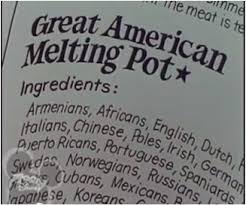#65 reply to Post #6 the Tocqueville eyewitness reply to #5
. Wrong context. Here’s the correct context from an eyewitness.
One Nation Under God: Alexis de Tocqueville
Upon my arrival in the United States the religious aspect of the country was the first thing that struck my attention; and the longer I stayed there, the more I perceived the great political consequences resulting from this new state of things.
First of all Tocqueville was not an eyewitness to the founding.
However, be that as it may, what must be “the new state of things“ that Tocqueville was referring to when he wrote, “great political consequences resulting from this new state of things.”
Tocqueville was a French, Catholic, aristocrat, roaming about 1830s America who became impressed maybe Infatuated with the religiosity of evangelical Protestant Christians who were at their peak of a great awakening of Protestantism that occurred just about dead center between the successful Revolutionary War and the great Civil War that was yet to be.
You cited Tocqueville also saying, “I do not know whether all Americans have a sincere faith in their religion -- for who can search the human heart?”
That means we cannot accept Tocqueville as any kind of reliable pollster on religious adherents in America.
As a side note: During the actual founding of America, middle and lower class Americans from 1776 to 1801 were more interested in grabbing land than being good faithful Christians.
Revival at Cane Ridge | Christian History Magazine
- On a trip to Tennessee in 1794, Methodist bishop Francis Asbury wrote anxiously about frontier settlers, “When I reflect that not one in a hundred came here to get religion, but rather to get plenty of good land, I think it will be well if some or many do not eventually lose their souls.”
- Andrew Fulton, a Presbyterian missionary from Scotland, discovered in Nashville and in “all the newly formed towns in this western colony, there are few religious people.”
- The minutes of the frontier Transylvania Presbytery reveal deep concern about the “prevalence of vice & infidelity, the great apparent declension of true vital religion in too many places.”
- Rampant alcoholism and avaricious land-grabbing were matched by the increasing popularity of both universalism (the doctrine that all will be saved) and deism (the belief that God is uninvolved in the world).
- Methodist James Smith, traveling near Lexington in the autumn of 1795 feared that “the universalists, joining with the Deists, had given Christianity a deadly stab hereabouts.”
- Hyperbole, perhaps. Still, during the six years preceding 1800, the Methodist Church—most popular among the expanding middle and lower classes—declined in national membership from 67,643 to 61,351.
- In the 1790s the population of frontier Kentucky tripled, but the already meager Methodist membership decreased.
- Civil war following the Second Great Awakening: At the height of the war, delegations of concerned clergymen received high-profile audiences with the President; the National Reform Association moved an amendment to the Constitution to add formal recognition of Christianity to its preamble; the military chaplaincy was dramatically expanded as a major component of the U.S. armed forces; and “fully one-third of all soldiers in the field were praying men and members of some branch of the Christian Church,” and religious revivals in the armies converted between 5 and 10 percent of men in uniform.
See above quotes:
At the turn of the century, testimony from Clergy that “not one in a hundred came here to get religion, but rather to get plenty of good land”...., Reliable Testimony
During the Civil War “fully one-third of all soldiers in the field were praying men and members of some branch of the Christian Church”
One third they say after the Great Protestant Awakening were Christians in the US Army.
So I don’t see much value in Tocqueville’s impressions about American founding Religion as it relates to this discussion.
Mostly because he was not a witness to the founding and because as a Catholic from France at that time when he witnessed Protestants practicing religion with enthusiasm and vitality voluntarily and fully detached from the state and the Pope, he could only compare it to the dead religion of his native France. Seeing a small percentage of the population practicing religion couid easily leave a false impression that it was much bigger and more important than it actually was.
He also didn’t associate with any of the actual founders who were Deists and not a Protestants attending tent revivals and charismatic churches.
Tocqueville is an extremely weak argument defending the almost absurd idea that America was founded as Protestant monoculture religion in 1776.
If you want not to be associated with Protestant Christian Nationalism then you need to abandon telling all of us that we must accept your Christian biased conclusion that America was founded as a Christian Nation. It was not.
